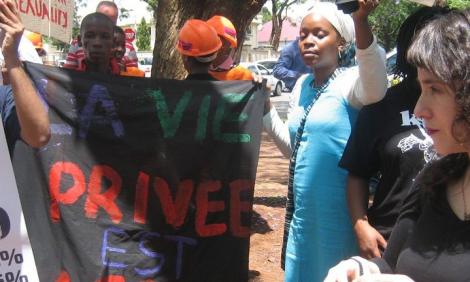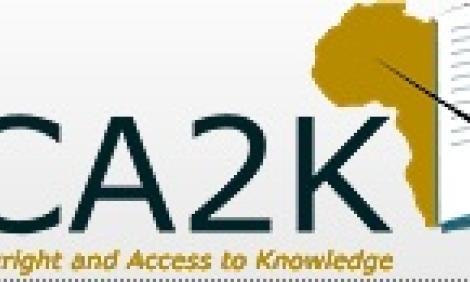Publication
Congo: Violence against Women and Information Communication Technologies
In Congo, Sylvie Niombo explores the intersection of VAW and ICTs, where mobile phone use appears to be the primary vehicle used to perpetrate VAW using ICTs. SMS and phone calls are used by some men to harass women and girls. Male monitoring of women’s use of mobile phones leads to blurring of privacy issues and power relations between men and women are reflected by who has the resources to buy…
Feminist talk
Challenging pornophobia and moral beliefs of Congolese media practitioners
Francoise Mukuku reports on the online discussion around ICT and violence against women organized by Genderlinks as part of the 16 Days of Activism: "As my organization Si Jeunesse Savait is implementing a 2-year project on the topic, I felt like it was really the place to be today...But let me tell you that the debate between most of the people I met online today was really far from meeting my…
Feminist talk
Democratic Republic of Congo: Letter from the world capital of rape
Francoise Mukuku reports from the world march of women against sexual violence that took place in October 2010 in eastern Democratic Republic of Congo (DRC). Special Rapporteur of the United Nations has named the Democratic Republic of Congo the "rape capital of the world," with 15,000 women raped in DRC only during last year. In her blog, Francoise also shares how information and…
In depth
Fatimata Seye Sylla: Not to have others speaking for us (video)
Fatimata Seye Sylla is a key figure in the Senegalese internet community. She worked for ten years within the Senegalese government, and for nine years in the private sector. She conducted the first national project to introduce ICT in the educational system. Fatimata shares with GenderIT.org why she came to Vilnius and what the IGF means to her personally and to women's rights.
Feminist talk
Africa and internet governance: going global or stay local?
The impact of internet governance on Africa was discussed on September 16th 2010, in Vilnius, Lithuania. There was fair representation of all stakeholders. Officials from South Africa, Kenya and Tunisia were there; a representative from an internet service provider; and various Africa bodies that follow the process, such as AFRINIC, ISOC Africa and CICEWA. And there were representatives from…

Feminist talk
The future of privacy: an internet governance issue
Will 'privacy' in ten years be different from what we know today? Many laws need to be reviewed in light of what we know about the internet. But also, two new rights emerged that were completely new to Francoise Mukuku. They incorporate the new dimensions that the internet adds to our lives: the right to accountability and the right to privacy from design. Users should be able to say: I may make…
Publication
Democratic Republic of Congo (DRC): Violence against women and ICT
In the context of a country with one of the world's worst human rights records, women and girls are the victims of sexual violence perpetrated mostly by combatants from both sides. However, Sylvie Niombo finds in this paper that the intersections between violence against women and girls and ICTs in the DRC are not well established. The internet makes it possible to share experiences and receive…
In depth
ICT gender issues past, present and future
As women living in Africa we have many things to confront: the process of African enlargement and our participation in the globalised world, the decline of national states, the dominance of market and consumerism, growing poverty, social and political inequalities or insecurities within Africa and outside in the face of neo-conservatism and dominance of the United States.

In depth
Reaction to the Gender Findings from Africa’s Access to Knowledge Research
GenderIT.org writer and a Research Officer at Canada`s International Development Research Centre, Kathleen Diga tracks the journey of the African Copyright…
In depth
Violence against Women and Information Communication Technologies: Congo Country Report
In Congo, Sylvie Niombo explores the intersection of VAW and ICTs, where mobile phone use appears to be the primary vehicle used to perpetrate VAW using ICTs. SMS and phone calls are used by some men to harass women and girls. Male monitoring of women’s use of mobile phones leads to blurring of privacy issues and power relations between men and women are reflected by who has the resources to buy…




